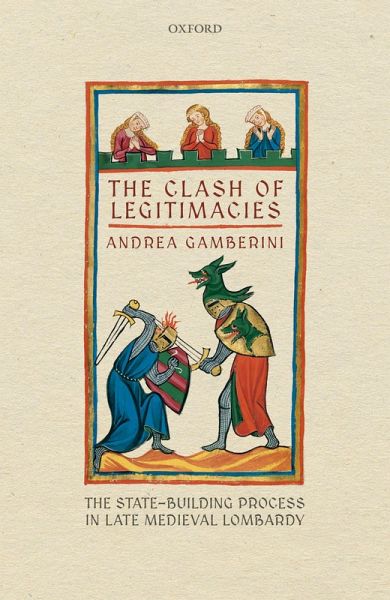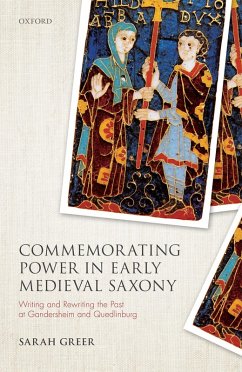
The Clash of Legitimacies (eBook, ePUB)
The State-Building Process in Late Medieval Lombardy
Versandkostenfrei!
Sofort per Download lieferbar
32,95 €
inkl. MwSt.
Weitere Ausgaben:

PAYBACK Punkte
16 °P sammeln!
The Clash of Legitimacies makes an innovative contribution to the history of the state-building process in late medieval Lombardy (during the 13th to 15th centuries), by illuminating myriad conflicts attending the legitimacy of power and authority at different levels of society. Through the analysis of the rhetorical forms and linguistic repertoires deployed by the many protagonists (not only the prince, but also the cities, communities, peasants, and political factions) to express their own ideals of shared political life, this volume reveals the depth of the conflicts in which opposing polit...
The Clash of Legitimacies makes an innovative contribution to the history of the state-building process in late medieval Lombardy (during the 13th to 15th centuries), by illuminating myriad conflicts attending the legitimacy of power and authority at different levels of society. Through the analysis of the rhetorical forms and linguistic repertoires deployed by the many protagonists (not only the prince, but also the cities, communities, peasants, and political factions) to express their own ideals of shared political life, this volume reveals the depth of the conflicts in which opposing political actors were not only inspired by competing material interests - as in the traditional interpretation to be found in previous historiography - but also often were guided by differing concepts of authority. From this comes a largely new image of the late medieval and early Renaissance state, one without a monopoly of force - as has been shown in many studies since the 1970s - and one that did not even have the monopoly of legitimacy. The limitations of attempts by governors to present the political principles that inspired their acts as shared and universally recognized are revealed by a historical analysis firmly intent on investigating the existence, in particular territorial or social ambits, of other political cultures which based obedience to authority on different, and frequently original, ideals.
Dieser Download kann aus rechtlichen Gründen nur mit Rechnungsadresse in A, B, BG, CY, CZ, D, DK, EW, E, FIN, F, GR, HR, H, IRL, I, LT, L, LR, M, NL, PL, P, R, S, SLO, SK ausgeliefert werden.













